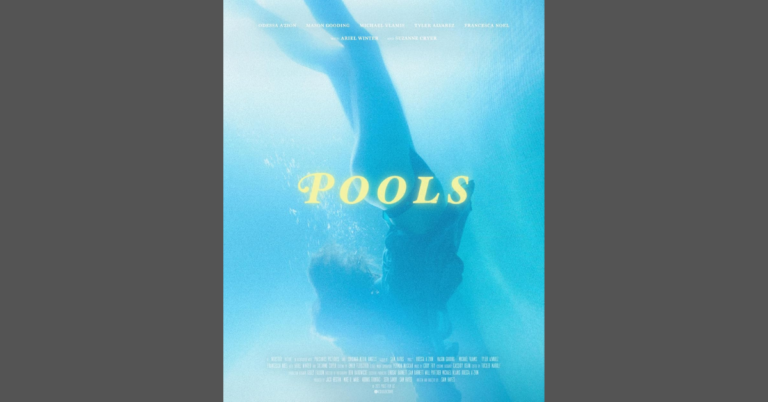Sharper Christian Review

Apple Originals’ Sharper isn’t just a movie; it’s a slick exercise in manipulation, a con artist’s playground where truths are malleable and trust is the ultimate currency. On the surface, it’s all about the twists, the lies, and the triple-crosses. But dig a little deeper, and you’ll find a story that, while immensely watchable, struggles to reach the depths of its thematic potential. This is a thriller that thrives on its own sharpness, albeit at the expense of emotional resonance—a shiny object that dazzles but doesn’t linger.
Clockwork Precision: The Allure of a Perfectly Engineered Plot
From the very first frame, Sharper sets out to entangle its audience in a web of intrigue. It’s not a film that asks you to suspend disbelief but rather dares you to keep up. Each scene unfolds like a carefully calibrated chess move, leading to a cascade of surprises that seem designed to elicit gasps, smirks, or both.
And for the most part, it works. The narrative moves with an almost mechanical precision, clicking into place with the satisfying sound of a well-oiled machine. It’s an elegant construction, the kind of story that seems to take pleasure in its own cleverness. Even the occasional stumble—a twist that lands with less force than intended, or a plot turn that feels a tad predictable—fails to disrupt the overall momentum.
Yet, for all its structural brilliance, there’s a sense of distance, a barrier between the audience and the story. The characters, while compelling, often feel like cogs in the machine, their humanity overshadowed by the demands of the plot. It’s a trade-off that’s both the film’s greatest strength and its Achilles’ heel.
Performances That Blur the Lines
One of Sharper’s undeniable triumphs lies in its performances. This is a film that relies heavily on its cast to sell its intricate narrative, and the actors deliver in spades. Julianne Moore, in particular, is a revelation. Her portrayal of a woman who alternates between vulnerability and cold calculation is a masterclass in nuance. She doesn’t just play her character; she inhabits her, making every smile, every tear, and every carefully chosen word feel like part of a larger strategy.
Sebastian Stan and John Lithgow are equally compelling, bringing depth and complexity to roles that could have easily been one-note. Stan’s simmering intensity adds an edge to his character’s every action, while Lithgow’s understated menace lends a sense of gravitas to the proceedings. Together, they create a dynamic that keeps the audience guessing, never quite sure who to trust or what to believe.
The cast’s performances are so layered, so steeped in charm and artifice, that they mirror the film’s central themes. In a story about deception, it’s fitting that the characters themselves are puzzles, their true motives hidden beneath carefully constructed facades.
Themes of Truth and Deception: A Moral Tightrope
At its core, Sharper is a film about lies—not just the lies we tell others, but the lies we tell ourselves. Each character is trapped in a web of their own making, driven by ambition, greed, or desperation. It’s a world where truth is a liability, and deception is a survival skill.
For Christian viewers, this presents a fascinating, if unsettling, moral landscape. Scripture teaches us to value honesty, to walk in truth even when it’s difficult. Yet, Sharper revels in its characters’ duplicity, inviting us to admire their cunning even as we recognize the damage they leave in their wake.
But the film isn’t entirely devoid of moral insight. Beneath its glossy surface lies a subtle commentary on the emptiness of a life built on deception. The characters’ victories are hollow, their achievements tainted by the lies they’ve had to tell to achieve them. It’s a reminder that success, when divorced from integrity, comes at a cost—a truth that resonates deeply with Christian teachings.
Style Over Substance?
Visually, Sharper is a feast for the eyes. The cinematography is sleek and stylish, the kind of aesthetic that feels tailor-made for the Apple brand. Each frame is meticulously composed, exuding a sense of luxury that mirrors the characters’ opulent world.
But while the film’s style is undeniably striking, it sometimes overshadows its substance. The emphasis on polish and precision leaves little room for emotional depth, making it difficult to fully connect with the characters. It’s a film that prioritizes cleverness over feeling, a choice that, while effective in the moment, leaves a lingering sense of emptiness.
From a Christian perspective, this lack of emotional engagement is a missed opportunity. The film brushes against profound themes—truth, trust, and the consequences of sin—but doesn’t fully explore them. It’s a story that invites reflection but doesn’t quite provoke it, content to entertain rather than challenge.
A Flawed Finale
If there’s one area where Sharper stumbles, it’s in its ending. After building a narrative of such intricate complexity, the film’s climax feels almost too neat, too predictable. The elaborate hoax that drives the final act is satisfying in its own way, but it lacks the jaw-dropping impact the story seems to promise.
This isn’t to say the ending is bad—it’s not. It ties up loose ends with a degree of competence that’s rare in modern thrillers. But it falls short of greatness, leaving viewers with a sense of “what could have been.”
For Christians, the ending’s shortcomings are particularly notable. It’s here that the film had the chance to grapple with its deeper themes, to offer a glimpse of redemption or a reckoning with the consequences of deceit. Instead, it opts for resolution over reflection, a choice that feels more like a missed opportunity than a deliberate narrative decision.
Conclusion: A Thrilling, If Shallow, Ride
In the end, Sharper is a film that knows exactly what it wants to be—and achieves it with impressive skill. It’s a polished, entertaining thriller that delivers plenty of twists and turns, even if it doesn’t dig as deep as it could. For viewers looking for a sleek, well-acted mystery, it’s more than worth the watch.
But for those seeking something more—something that engages not just the mind but the heart and soul—it may leave you wanting. It’s a film that entertains but doesn’t linger, a story that intrigues but doesn’t transform.
Final Rating: 7/10
Sharper is a testament to the art of deception, a film that dazzles with its cleverness even as it leaves room for sharper storytelling. It’s a thrilling, if shallow, ride—a polished gem that shines brightly but lacks the weight to truly leave a mark.






